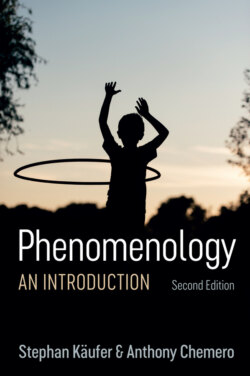Читать книгу Phenomenology - Anthony Chemero - Страница 6
Introduction
ОглавлениеPhenomenology is a loosely grouped philosophical tradition that began with Edmund Husserl in the 1890s and is still practiced today, though some of its current instantiations no longer use the name. The tradition is old enough to have a history, and it includes claims that seem odd, quaint, or outdated. And yet it is recent enough that even the work of its founders is alive with ideas that still challenge us and hold great promise. Arguably philosophers are only now beginning to fully appreciate the core insights of phenomenology, as we learn to construct rigorous analyses of perception and cognition in a phenomenological framework.
This book covers what we believe an interested reader ought to know about phenomenology, its history, its most important authors and works, and its influence on branches of current philosophy, psychology, and cognitive science. We discuss the history of phenomenology through the work of Husserl, Heidegger, and Merleau-Ponty, their arguments against scientific psychology, and their critical examination of Gestalt psychology. As part of this history, we also include extended discussions of Gurwitsch, Sartre, and the history of psychology. We go on to discuss contemporary developments in critical phenomenology of gender and race, ecological psychology, critiques of cognitivist approaches to artificial intelligence, and embodied cognitive science. This mix of topics and level of detail make this a good textbook for undergraduates studying philosophy, psychology, or cognitive science, and a good starting point for graduate students and academics who are new to phenomenology.
